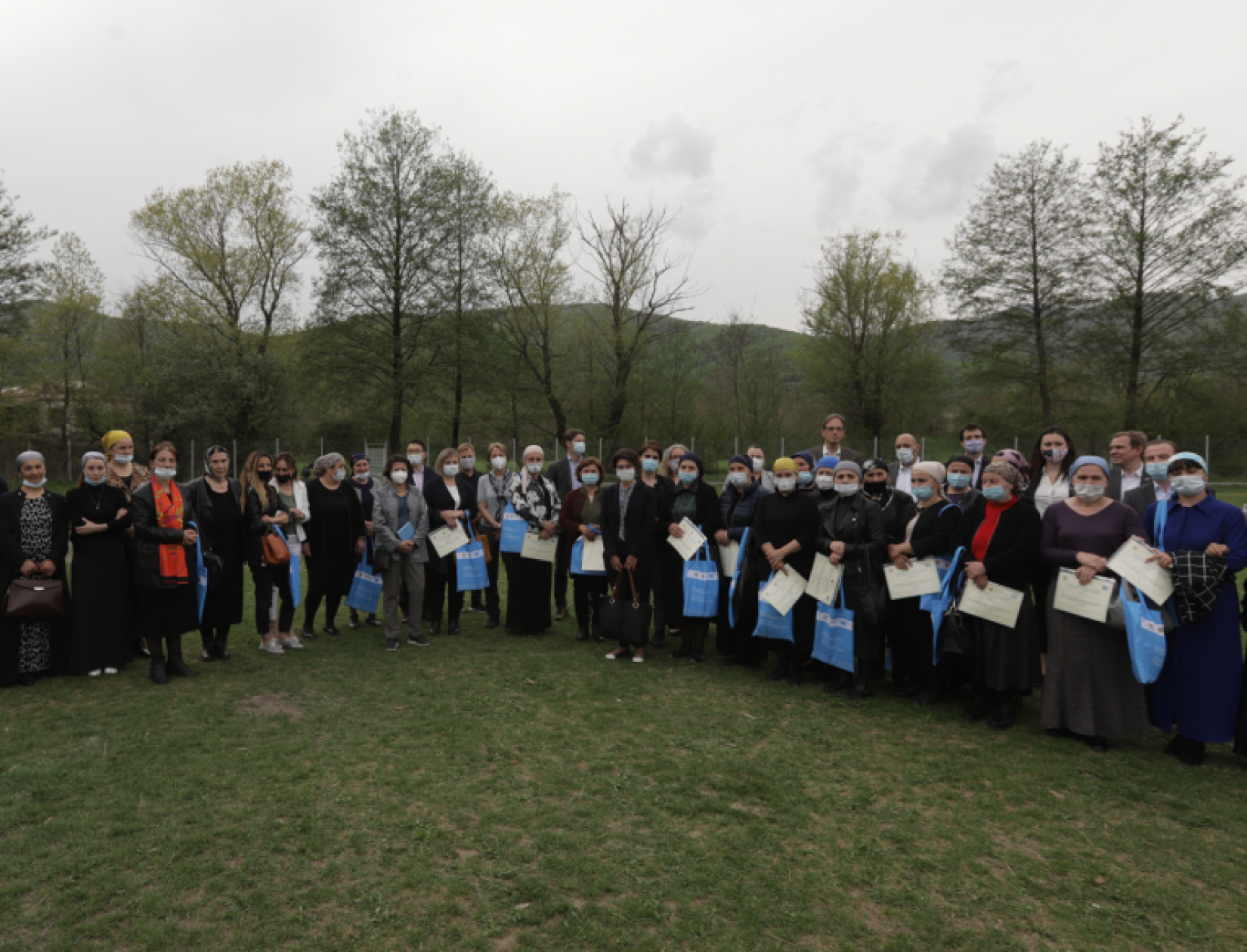A joint visit of International Development Partners to Pankisi Gorge
21 April 2021
A delegation of Ambassadors, representatives of 13 countries, UNICEF Regional Director for Europe and Central Asia Ms. Afshan Khan, UN Resident Coordinator Dr. Sabine Machl and UNICEF representative in Georgia Dr. Ghassan Khalil had a two-day visit to Pankisi Gorge.

The visit to Pankisi is being organized by UNICEF Georgia to provide international development partners with an account of the current needs of children and their families whose lives have been affected by complex challenges. The delegation consists of Ambassadors and High Representatives of Austria, Bulgaria, Estonia, France, Germany, Japan, Netherlands, Norway, Poland, Sweden, Spain, Turkey, United States and the UN Resident Coordinator.
"Along with our partners we are looking forward to make sure that these barriers for children are removed and young people of Pankisi reach their full potential." - Ghassan Khalil
“UNICEF has been actively working with communities in remote areas and ethnic minorities and I am glad that, together with UNICEF Regional Director for Europe and Central Asia we have invited our international friends and partners to visit and discuss how the international community can support children and their families in Pankisi,” said Ghassan Khalil, UNICEF Representative in Georgia. “We are learning about the challenges that children and families face in the region, such as quality of education, lack of internet access, scarcity of social services and a lack of youth opportunities. Along with our partners we are looking forward to make sure that these barriers for children are removed and young people of Pankisi reach their full potential.”
"Without sustained action, we risk an irreversible decline in progress on child rights and the Sustainable Development Goals." - Afshan Khan
“The younger generations have been hard hit by the COVID-19 pandemic.” said the UNICEF Regional Director for Europe and Central Asia Ms. Afshan Khan. “A secure, fair and inclusive future in the Pankisi region will depend on boosting the competence, confidence and resilience of young people and their families. Without sustained action, we risk an irreversible decline in progress on child rights and the Sustainable Development Goals.”
The programme of the visit consists of meetings with the local Council of Elders, the Women’s Council, parents, teachers, and religious leaders, as well as discussions with local youth, and the provision of education supplies to the schools of Pankisi. The delegation members will also learn about the region and discuss the child-oriented development plan for Pankisi.

Similar to elsewhere in Georgia, at least one in four children in Pankisi lives in poverty with low levels of household income. Education has been impacted significantly by the COVID-19 Pandemic, with schools closed for the majority of the year. The poorest children do not have access to online learning. Informal education opportunities for youth in Pankisi are not sufficient, this includes physical infrastructure for cultural activities as well as sport facilities.


















